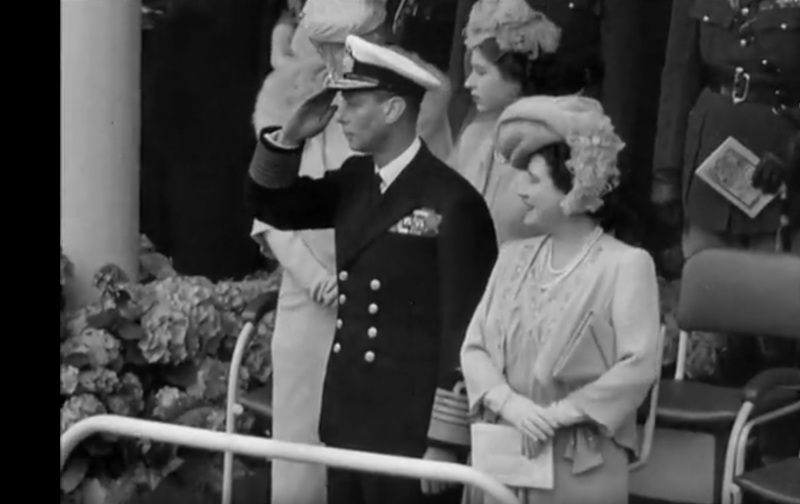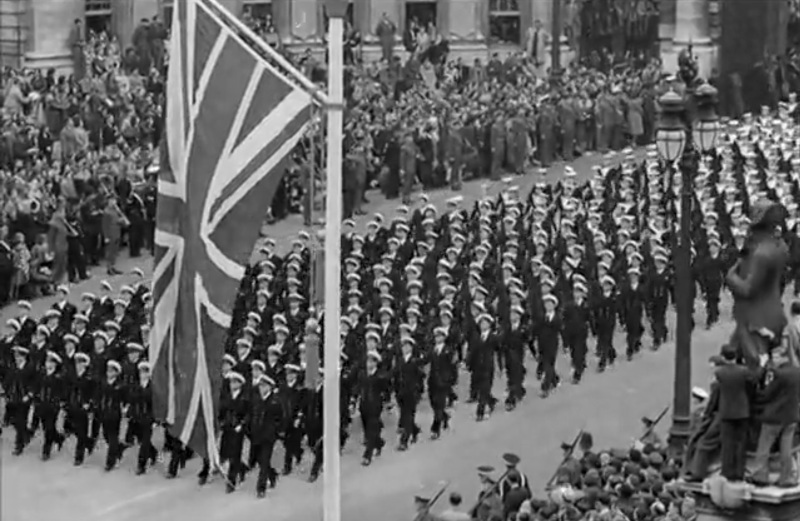WWII stories: Victory Parade marked a fresh start

Memories of watching the Royal family celebrate the end of the Second World War in a “huge victory parade” in central London have never dulled for 92-year-old Terry.
A teenager at the time of the awe-inspiring spectacle, he joined thousands to catch a glimpse of King George VI, the Queen Mother, and Princesses Elizabeth and Margaret alongside the wartime coalition government leaders Winston Churchill and Putney-born Clem Atlee.
Watch Terry tell his story
“It was June 1946, so about a year after VE Day itself and they were determined to mark the occasion with a huge parade,” explains Terry, who lives in Putney.
“The King, the Queen, the Princesses, the whole of the government, Churchill, Atlee, you name it, all of the chiefs of staff, all the heads of Allied Forces, all were there.”
National effort
“They had a massive march past, we had regiment after regiment coming through, about 1,000 Scottish pipers marching past, that was spectacular,” continues Terry.
“It wasn’t only the military, after that came others who had been committed during the war.
“I distinctly remember the Land Army girls, who came past on a tractor, firemen, bus conductors.
“What impressed me most was that this enormous effort had been across the whole country, and it was so right to have done it that way so it wasn’t just a military parade, it was also representation of what was the whole national effort.”

Along with the other spectators, Terry – who later went on to work for the BBC – rushed to Buckingham Palace, following the Royal family.
“We stood outside the palace in a massive crowd and we were all held back by the cops,” remembers Terry.
“Everyone waited for the King, the Queen and Churchill to appear on the balcony, then all rushed up to the gates. We were so pleased and delighted, that was tremendous.
“I think the feeling was that it was a new start. It was as if the doors had suddenly been flung open.”
Atrocities of war
Despite the joy of that Victory Parade occasion, Terry remembers clearly his horror at the atrocities associated with the war.
“The two shocks that brought the real nature of the war to me was seeing the first reports of the concentration camps in Germany with these terrible pictures,” he points out.
“Then I opened the newspaper and there’s a picture of the atom bomb.
“When you went out on VE Day and whatever, that wasn’t in your mind, but deep down those sorts of experiences were there.
“I think a lot of people felt at VE Day and why there was all this relief and joy, is that somehow the right thing had been done. That it had been justified, the whole thing.”
Discover more stories and memories of the Second World War and beyond.
